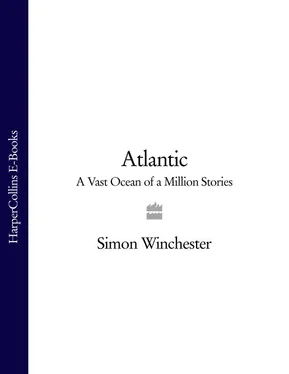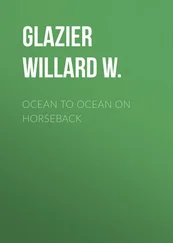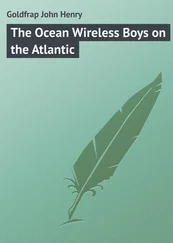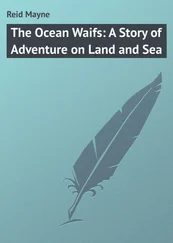By the early Cretaceous, 1 20 million years back in time, the conveyor-belt-unrolling-carpet mechanism that was now evidently driving the entire process — for there was to be no further dramatic volcanism to complicate matters - had an apparent source: the Mid-Atlantic Ridge had been formed. This linear bulge in the seabed, its centre fissured and faulted and alive with submarine volcanoes, would play a vital role for the rest of the ocean’s history. It was the place where new crustal material would be belched out of the inner earth, where the ocean floor to the east and the west of it would spread out and away, and where islands — a long string of them, the Azores, the Canaries, St. Helena, Fernando do Noronha, Tristan da Cunha, a jagged line stretching from Jan Mayen in the far north to Bouvet Island, 9,200 sea miles away to the south 6- occasionally poked their peaks above water level, only to be pushed away in their turn to end up, remote and mostly unpeopled, in the new ocean’s farther reaches.
And still the opening went on. Fifty million years more, and the north and middle portions now began to create and separate the southern coasts of Africa and South America. There was at first another sudden outbreak of volcanic activity - flood plains of basalt poured from numberless vents. But then separation began down here, too, though it is still not clear if this was connected with the volcanic spasm. And here the process did indeed look like the unzipping of a fly, and it was accomplished with similar speed. It was an opening up that rippled southwards, one coastline following hard on another. Nigeria stripped itself away from Brazil. The valleys that would one day house the Congo on one side and the Amazon on the other snapped apart. The flood basalts of the southern edge of Pangaea separated into two: on one side the enormous Etendeka Traps, which would come to lie in southern Africa — and over the edge of which the Victoria Falls now cascade - and on the other the Paraná basalts of Argentina, currently home to the sprawling spray curtains of the falls the Guarani called big waters, the Iguazu.
And then in a final protracted frenzy of tearing, all of eastern Patagonia wrenched itself away from Angola, and the flatlands that were then off Cape Horn freed themselves from their geological embrace of what is now Namibia and the South African cape, and swept away to become the foothills of the southern Andes.
This was all accomplished at a remarkable speed, for though in the north matters unfolded in a somewhat leisurely fashion, down south they raced almost breathlessly. The Atlantic coastlines that had once been welded together between the bulge of Brazil and the armpit of Africa - the apparently natural fit that led nineteenth century figures like Alfred Wegener to think out loud that continents might once have moved apart, thoughts that condemned him to live in near-universal and near-perpetual ridicule - had managed in a scant forty million years to spring five thousand miles apart from one another. The sea in these parts must have opened up at rather more than four inches a year - infinitely more rapidly than the separation that took place up in the brisk waters of the North Atlantic, and more than three times the rate at which the ocean continues to spread wider today.
And that movement has never ended. The outline of the Atlantic Ocean that we know today was fixed perhaps ten million years ago, and though to us and our cartographers it appears to have retained its boundaries, its coastlines, and its “look” ever since the days of Columbus and Vespucci and the great German map of Martin Waldseemüller that first defined it, it has been changing, subtly and slightly, all the time. Coastlines in the east continue to advance, those in the west to retreat. Things fall apart: the centre cannot hold. The Mid-Atlantic Ridge continues to disgorge untold tonnages of new ocean floor; some of it appears above the water’s surface and creates new islands and reefs. And the islands that do exist continue to move, slowly and slightly, away from the sea’s centre.
By ten million years ago the great split was done, and the Atlantic was fully born. At some time in the distant future — but not the unknown future, as we shall see — the rocks that opened will close and the sea will be forced to go elsewhere, and it will find another home. The vast earth-ocean, with its essentially and eternally constant volume of seawater, will be obliged by continental movement to reconfigure itself, and in time other shapes and sizes of its constituent water bodies will appear. The Atlantic that was born will in due course also die.
But that will not be for a very long while. In the meantime, the Atlantic Ocean, Mare Atlanticus, the Great West Sea, is like an enormous stage set. It was ten million years ago just as it is today: a sinuous snakelike river of an ocean, stretching thousands of miles from the Stygian fogs of the north to the Roaring Forties in the south, riven with deeps in its western chasms, dangerous with shallows in eastern plains, a place of cod and flying fish, of basking sharks and blue-finned tuna, of gyres of Sargasso weed and gyres of unborn hurricanes, a place of icebergs and tides, whirlpools and sandbanks, submarine canyons and deep-sea black smokers and ridges and seamounts, of capes and rises and fracture zones, of currents hot, cold, torrential, and languorous, of underwater volcanoes and earthquakes, of stromatolites and cyanobacteria and horseshoe crabs, of seabird colonies, of penguins and polar bears and manta rays, of giant squid and jellyfish and their slow-and-steady southern majesties, the great and glorious wandering albatrosses.
The stage, now so amply furnished with all this magic and mystery, has been prepared for a very long while. The supporting cast of players, all the beasts and plants, have now mostly made their entrances. The Atlantic Ocean is open wide, its physical condition fully set, and all is ready for the appearance on stage of the creature that will give full force to the human idea of the great sea.
For what promises or threatens to be in relative time just the briefest moment only, the central character is set to step into the light. Mankind is finally about to confront the grey-heaving reality of all these mighty waters. To see, at last, just what is going on.
Конец ознакомительного фрагмента.
Текст предоставлен ООО «ЛитРес».
Прочитайте эту книгу целиком, купив полную легальную версию на ЛитРес.
Безопасно оплатить книгу можно банковской картой Visa, MasterCard, Maestro, со счета мобильного телефона, с платежного терминала, в салоне МТС или Связной, через PayPal, WebMoney, Яндекс.Деньги, QIWI Кошелек, бонусными картами или другим удобным Вам способом.












